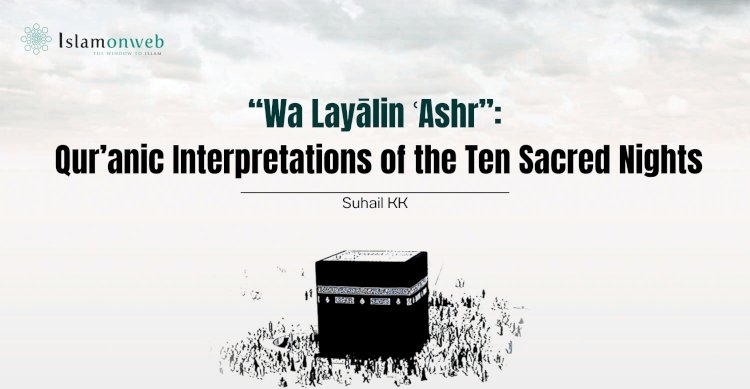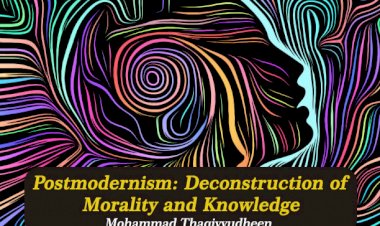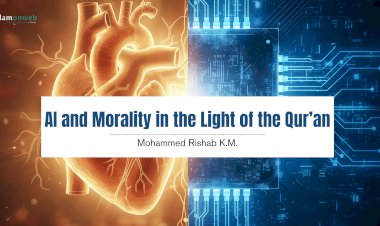“Wa Layālin ʿAshr”: Qur’anic Interpretations of the Ten Sacred Nights
Among the most spiritually elevated times in the Islamic calendar is the month of Dhul-Ḥijjah, the twelfth and final month, during which Muslims around the world engage in diverse acts of worship seeking Allah’s mercy and eternal reward.
Islamic texts—particularly the Qur’an and Sunnah—emphasise the exceptional virtue and significance of this month. The Qur’an itself references this sacred period in multiple places. Notably, Sūrat al-Ḥajj (The Pilgrimage) outlines various rites and dimensions of Ḥajj, highlighting both its physical rituals and its profound spiritual meanings, including the importance of sincerity and inner purification.
Another notable reference comes in Sūrat al-Fajr, where Allah swears by “the ten nights” (wa layālin ʿashr). This oath has intrigued classical and contemporary scholars alike, leading to various interpretations. Some exegetes (mufassirūn) identify these nights as the first ten of Dhul-Ḥijjah, while others propose the last ten nights of Ramaḍān or the first ten nights of Muḥarram. This diversity of opinion highlights the depth and richness of Qur’anic interpretation.
This article aims to explore these scholarly perspectives on the phrase "wa layālin ʿashr", drawing upon classical tafsīr literature to present a comprehensive understanding of the verse in context.
"Walayālin ashrin" and the surah Al Fajr
As mentioned above, the verse "Walayālin ashrin" is belongs to surah Al-Fajr, which is 89th of the holy Quran with 30 verses. Allah begins the surah by swearing an oath:" by the dawn, and the ten nights, and the even and the odd, and the night when it passes- is all this not a sufficient oath for those who have sense?”۔ Normally, the style of swearing oath in holy Quran is connected and integrated with powerful and valuable things. Therefore, the verse “Walayālin ashrin" also from this kind of oaths.
The various interpretation of "Walayālin ashrin":
When we discuss about the different commentaries of this verse, can understand and realize the deep meaning of verse. Ibn Kathir, one of the prominent among the commentators explains surah Al-Fajr: “concerning Al-Fajr, it is well known that it is the morning. This was said by Ali, Ibn Abbas, Ikrima, Mujahid and As Suddi”.[1]
It has been reported from Masruq and Muhammad bin Ka’b that Al-Fajr refers to the day of sacrifice (An-Nahr) in particular, and it is the last of the ten nights.[2] ‘The ten nights’ refers to the first ten days of Dhul-Hijjah. This was said by Ibn Abbas, Ibn Zubayr, Mujahid and other among the salaf and the latter generations. It has been confirmed in Sahih Al-Bukhari from Ibn Abbas that the prophet PBUH said:
" مَا مِنْ أَيَّامٍ اَلْعَمَلُ الصَّالِحُ أَحَبُّ إِلىَ اللهِ فِيهِنَّ مِنْ هَذِهِ الْأَيَّامِ"
“There are no days in which righteous deeds are more beloved to Allah than these days” meaning the ten days of Dhul-Hijjah. They said, “Not even fighting jihad in the way of Allah?” he replied:
“وَلاَ الْجِهَادُ فِي سَبِيلِ الله ، إلا رَجُلاً خَرَجَ بِنَفْسِهِ وَمَالِهِ ثُمَّ لَمْ يَرْجِعْ مِنْ ذَلِكَ بِشَيْءٍ”
“Not even jihad in the way of Allah; except for a man who goes out (for jihad) with his self and his wealth, and he does not return with any of that”[3]
In next verse of this surah, Allah almighty says:
“وَالشَّفُعِ وَالْوَتْر”
“And by the even and the odd”
It has been mentioned in a Hadith that al watr is the day of Arafah because it falls on the ninth and ash-shaf’I is the day of An-Nahr because it falls on the tenth day. This was also said by Ibn Abbas, Ikrimah and Ad-Dahhak.[4]
Dr. Muhammad Tahir-ul-Qadri, a renowned commentator of the Noble Qur’an, states in his exegesis Irfān-ul-Qur’ān that the opening verses of Sūrat al-Fajr refer to the sacred month of Dhul-Ḥijjah. In particular, the second verse—"By the ten nights"—has been interpreted to include several possibilities: the last ten nights of Ramaḍān, the first ten nights of Muḥarram, or the first ten nights of Dhul-Ḥijjah, all of which are permeated with the blessings and bounties of Allah Almighty.[5]
Imām Fakhr al-Dīn al-Rāzī offers three key interpretations of the term “al-Fajr” in Sūrat al-Fajr. First, he explains that it refers to the well-known morning twilight (ṣubḥ), symbolising the emergence of light after darkness. Secondly, al-Rāzī suggests that “al-Fajr” may refer specifically to the Fajr prayer, which holds great spiritual merit as it is witnessed by both the angels of the night and day, as indicated in al-Isrāʾ: 78. Lastly, he presents the view that it may refer to the dawn of a particular day, most notably Yawm al-Naḥr (the Day of Sacrifice, 10th Dhul-Ḥijjah).
He further highlights two important aspects of the verse "wa layālin ʿashr". First, the use of the indefinite form ("ten nights") in Arabic signifies the greatness and virtue of these nights. The phrase "wa layālin ʿashr" is used in a form that implies exclusivity and special merit. Second, he notes that these nights may refer to either the first ten days of Dhul-Ḥijjah, the first ten nights of Muḥarram, or the last ten nights of Ramaḍān—each group of nights being uniquely virtuous.[6]
In his Tafsīr, Imām al-Qurṭubī explains that the phrase “wa layālin ʿashr” refers primarily to the first ten nights of Dhul-Ḥijjah, a view supported by prominent early scholars such as Mujāhid, al-Suddī, al-Kalbī, and Ibn ʿAbbās. Masrūq linked these nights to the ten mentioned in the story of Prophet Mūsā (ʿalayhi al-salām), which Allah completed, signifying their great merit. A ḥadīth narrated by Abū al-Zubayr from Jābir also supports this interpretation, quoting the Prophet ﷺ as saying that the “ten nights” refer to the nights of al-Aḍḥā, indicating that the night preceding Yawm al-Naḥr is included among them. Al-Qurṭubī notes that the term was deliberately left indefinite to emphasise the uniqueness and superiority of these nights over all others. Other interpretations include the last ten nights of Ramaḍān (as mentioned by Ibn ʿAbbās and al-Ḍaḥḥāk) and the first ten nights of Muḥarram, particularly due to the significance of ʿĀshūrāʾ, as supported by Ibn ʿAbbās, Yamān, and al-Ṭabarī.[7]
The prominent scholar al-Bāqillānī mentions that these ten nights may also symbolically point to several significant historical and spiritual events: the six nights during which the heavens and earth were created; the night Adam (peace be upon him) was created; the night in which the Resurrection will occur; the night Allah spoke to Mūsā (peace be upon him); and the night the Prophet Muḥammad ﷺ was taken on the miraculous Night Journey (al-Isrāʾ wa al-Miʿrāj).[8]
According to the majority of the scholars, these ten nights refer to the 10 days of Dhul Ḥijjah. When Allah swears an oath by something, it is an indication of its importance and benefit. Ibn Ḥajar (raḥimahullāh) said the reason that these 10 days are so special is because all of the major acts of worship occur in them, which doesn’t happen in other days: ṣalāh, fasting, charity and ḥajj. Although it is possible to combine the first three deeds on an ordinary day, the great worship of ḥajj is restricted to these blessed days.
In conclusion, the first ten days of this month are considered among the holiest in the Islamic calendar. These days are also highlighted by Prophet Muhammad (peace be upon him) as especially blessed, encouraging increased devotion and righteous deeds. And being distinguished in excellence is due to the assembly of the greatest acts of worship in this period.
References:
- Tafsir Rooh-ul-Bayan, Allama Ismail Haqqi al-Barousawi al-Naqashbandi
- The Glorious Quran(English translation of Irfan-ul-Qura’n,) , Muhammad Tahir-ul-Qadri
- Al jamiu li Ahkamul Quran, Imam al Qurtubi
- Al-Tafsir al-Kabir , Fakr al-Din al-Razi
- Tafsir ibn kathir, Ibn kathir
Citations:
[1] At-Tabari: 24:395, and Al –Baghawi 4:481
[2] Al-Qurtubi: 20:39
[3] Fath Al-Bari 2:530
[4] At-Tabari 24:397,398
[5] The Glorious Quran(English translation of Irfan-ul-Qura’n,) by Dr. Muhammad Tahir-ul-Qadri
[6] Al-Tafsir al-Kabir by Fakr al-Din al-Razi
[7] Tafsīr al-Qurṭubī, al-Jāmiʿ li-Aḥkām al-Qur’ān, commentary on Sūrat al-Fajr [89:2].
[8] "Tafsir Rooh-ul-Bayan by Allama Ismail Haqqi al-Barousawi al-Naqashbandi
More Related Articles:
The Virtues and Significance of the First Ten Days of Dul Hijjah
Esoteric Horizons of Dhul-Ḥijjah
Disclaimer
The views expressed in this article are the author’s own and do not necessarily mirror Islamonweb’s editorial stance.
























Leave A Comment